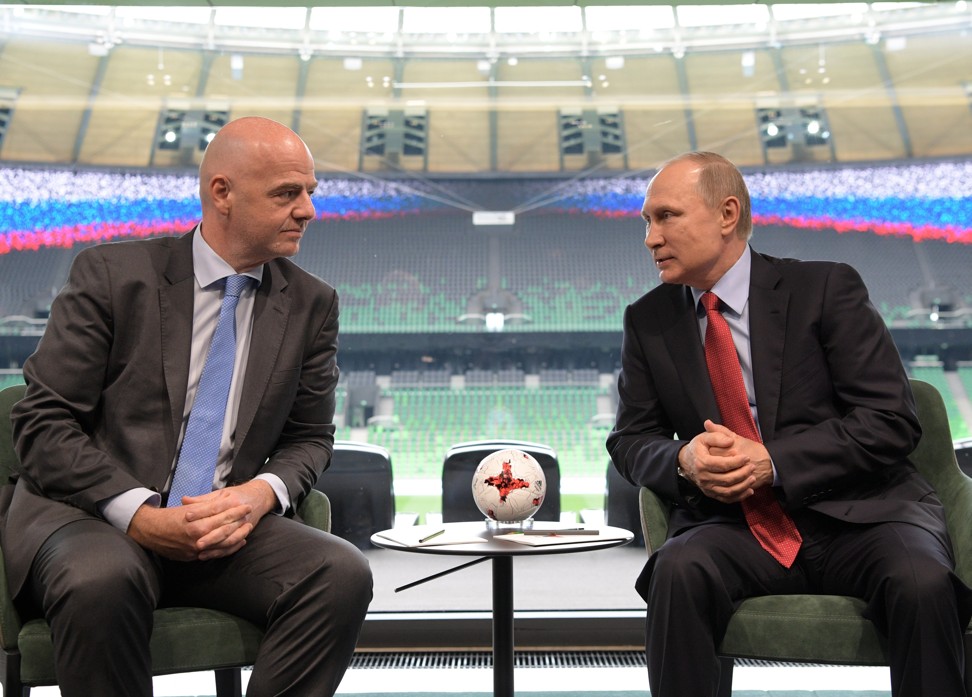
With more mainland sponsors securing deals with Fifa, is China buying its way to hosting the World Cup?
Do the big-money deals being announced between Chinese companies and football’s governing body give China influence over the governing body?
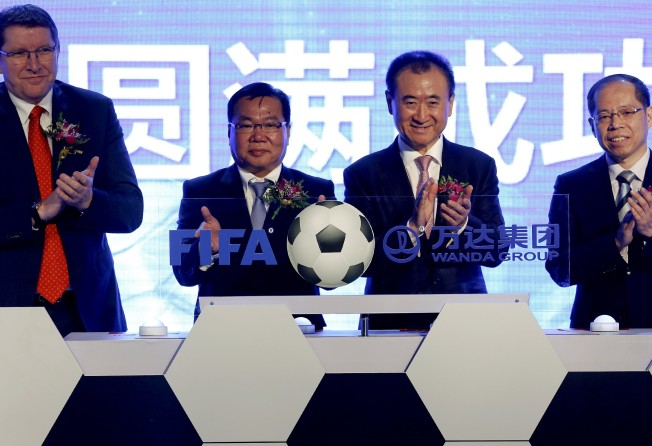
Vivo’s announcement that it is to become a Fifa sponsor marks another step in the increasingly close relationship between China and the football’s world governing body. The $448 million deal is the latest in a series of sponsorships involving Fifa and Chinese corporations, with Wanda, Alibaba and Hisense having also signed big-money deals over the last year or so.

Given that Fifa’s cash cow, the World Cup, only takes place every four years, the organisation’s financial challenges have therefore been especially acute. Indeed, the last thing it has needed has been for the likes of Sony and Emirates to have jumped ship, and for the others including McDonald’s and Budweiser to have issued direct public warnings aimed at the Swiss-based organisation.
However, into the vacuum created by the fallout of corruption, ongoing public scrutiny and growing financial pressure, has stepped a country that has rapidly become one of Fifa’s closest allies: China. Together, Vivo, Wanda, Alibaba and Hisense have filled a hole in the governing body’s finances, a hole that others have seemed extremely reluctant to step into.
Wanda’s owner, Wang Jianlin, has already openly stated that his company took advantage of Fifa’s turbulence to seal its sponsorship deal.
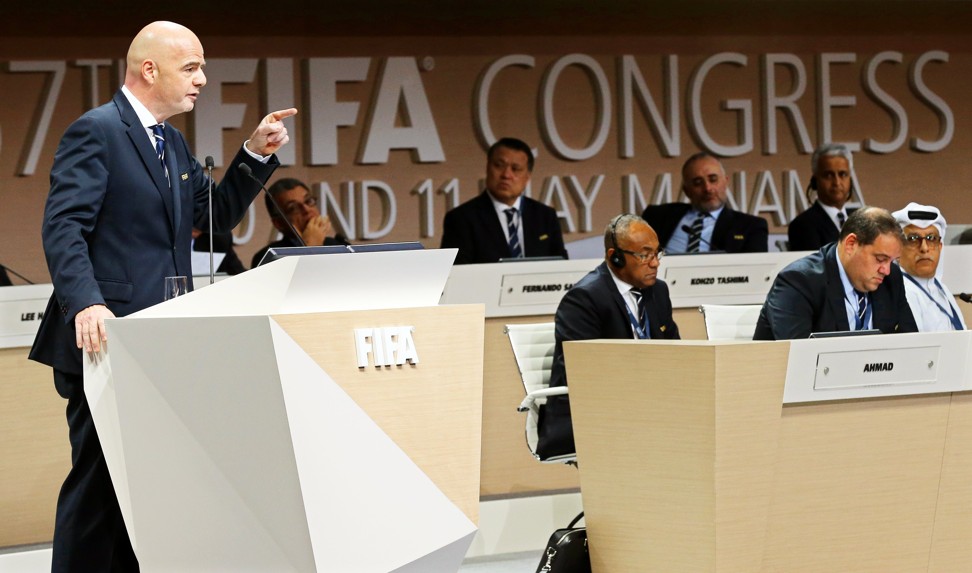
China’s influence on world football will no doubt have also been enhanced with the recent election of the Chinese Football Association’s Zhang Jian as one of Fifa’s new council members. However, it is hard cash from sponsorships that is likely to be having a more profound impact, although this is hardly accidental.
In effect, China has strategically created a resource dependence in its relationship with Fifa, whereby the latter is now increasingly looking eastwards in its quest for money.
Resource dependence can be characterised thus: an organisation seeking key resources will look towards external entities holding plentiful supplies of these resources. By holding such supplies of these resources, the external entities become imbued with a level of power which they may seek to exert over the organisation seeking access to the resources. As such, resource dependence theory suggests that Entity A’s power over Entity B will be equal to Entity B’s dependence on Entity A’s resources. Among the effects of resource dependence are the emergence of interlocks between the two entities, as well as strategic alliances, joint ventures and acquisitions.
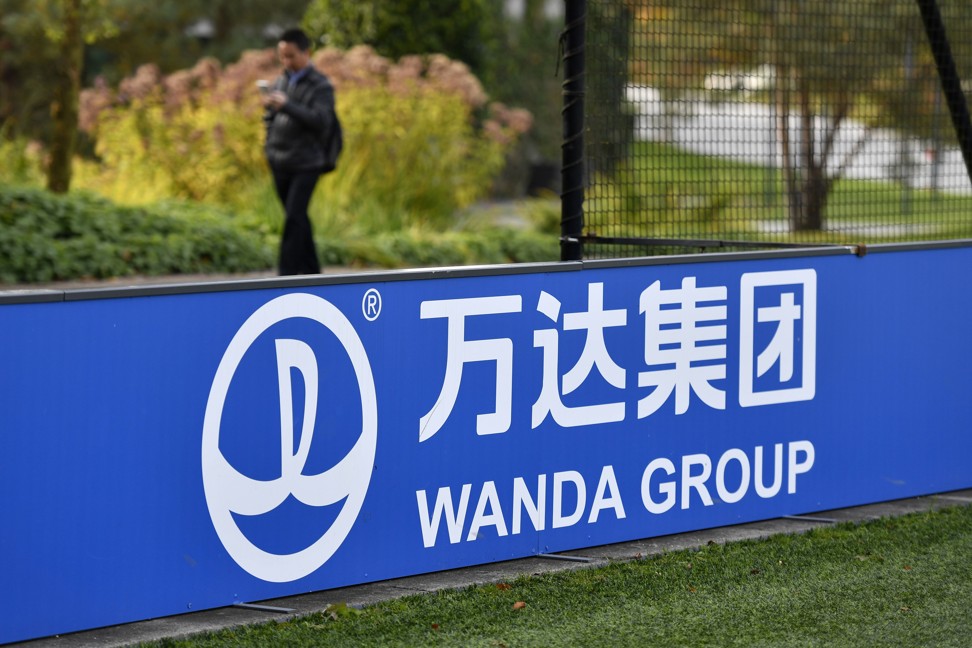
By now, many people are aware of the country’s desire to host and win the World Cup, both of which many observers have viewed purely in playing terms. However, Fifa now seems to have become entwined in a network of Chinese economic and political forces, from which it may be difficult to escape. For instance, it is perhaps telling that Wanda’s sponsorship deal with the World Cup ends in 2030, with some people already speculating that China’s payback will be to host the tournament that year.
It is worth noting at this point that signing a Fifa sponsorship deal does not simply involve a company buying the right to have its name appear on a rotational sign beside a football pitch. The contract fee aside, sponsors may spend as much again or possibly even twice as much as the contract’s value on sponsorship activation. Activation essentially entails a sponsor making its sponsorship deal work by running competitions, advertising on television, engaging in guest hospitality and so forth.
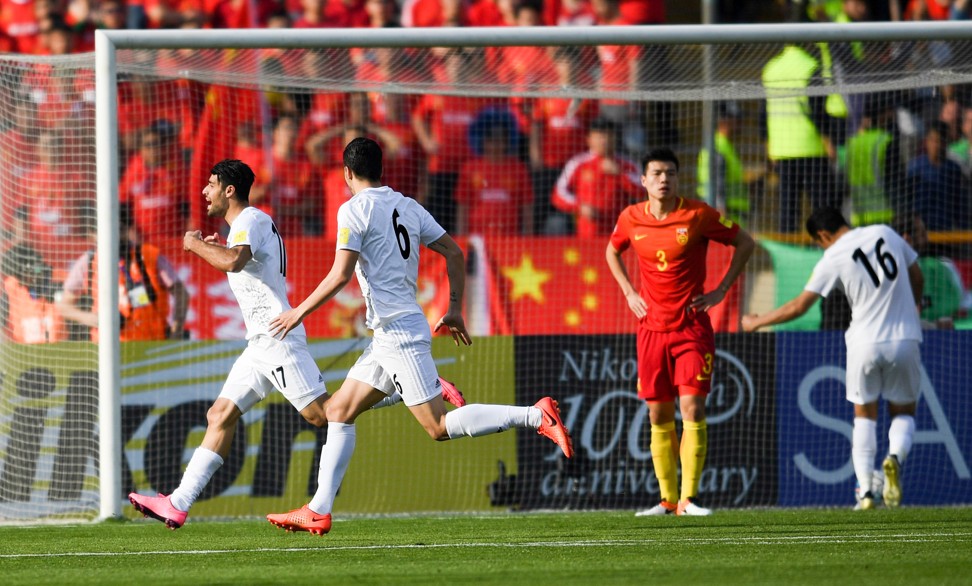
Sponsorship activation often involves the sponsor entertaining invited guests in the executive boxes one typically finds encircling modern football stadiums. ‘Guests’ is perhaps too general a word; commercially driven organisations will invite either customers or business leads, but other key stakeholders may also be invited. Particularly, members of the media and politicians are frequently wined and dined in such environments.
This may give sponsors unprecedented access to the people who make or influence important decisions, such as those who influence which country might host a World Cup. China’s connections within Fifa should not therefore be couched solely in terms of the financial ties between the two of them. Rather, it should also be seen in terms of the extended network of relationships a World Cup sponsorship links China and its corporations into.
While the world observes China’s quest to become a leading force on the football field, it is arguable that some of the country’s more significant moves are taking place away from pitches and stadia. Sponsorships are not all about gloss, glitz and rotational signs, they also have the power to affect important political decisions.
This piece is published in partnership with Policy Forum, an academic blog based at the ANU Crawford School of Public Policy.